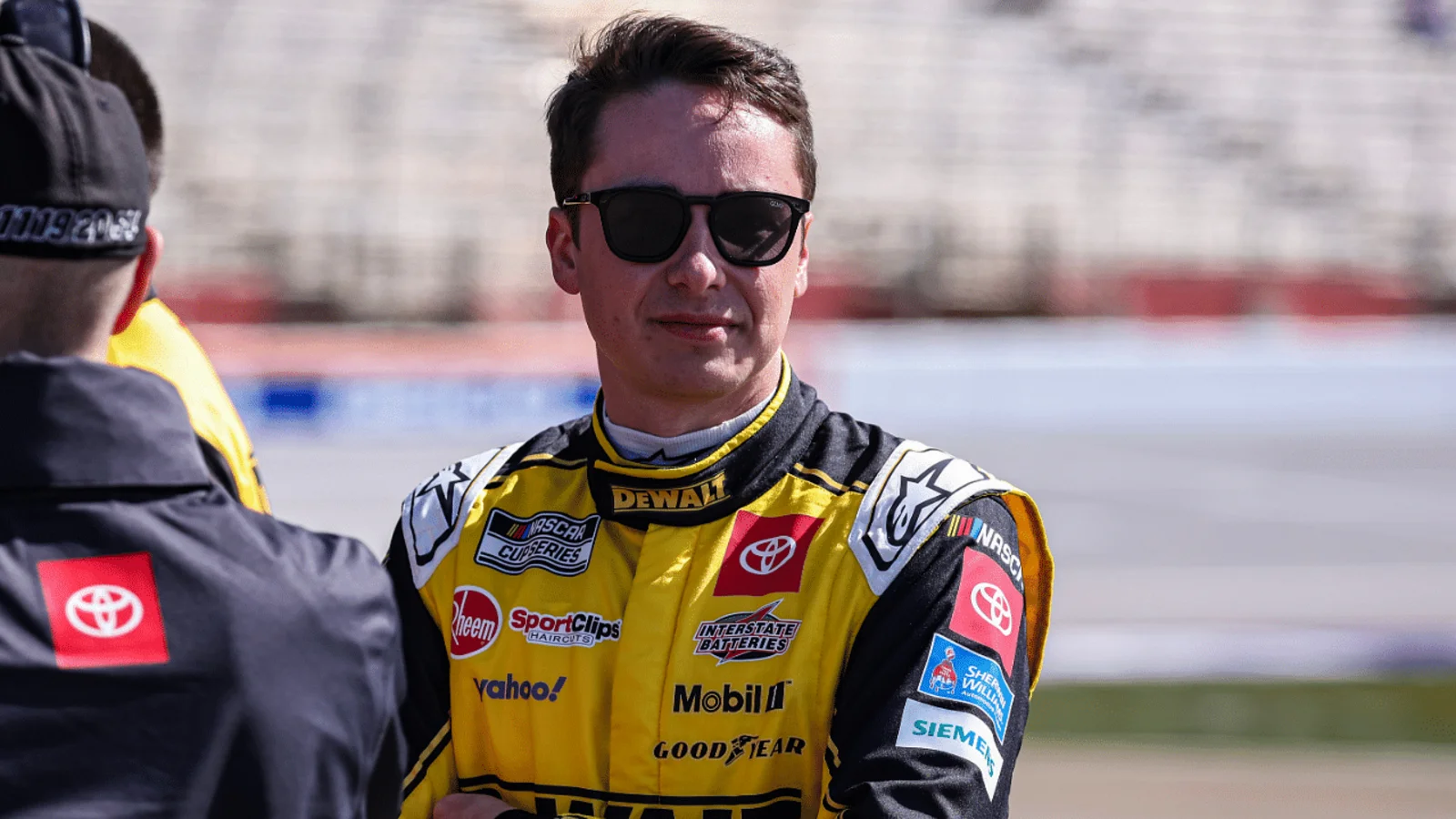The ongoing discussion about NASCAR’s playoff system has gained momentum, as Christopher Bell has voiced strong opinions on the current method of choosing a champion, expressing his hope for change as NASCAR eyes possible reforms for 2026. The Christopher Bell NASCAR champion format debate, centered around rewarding season-long performance over single-race results, has entered a new phase with Bell’s recent comments fueling the conversation.
Christopher Bell’s Perspective on the Champion Format
The structure used to crown a NASCAR champion has been a subject of controversy, particularly among drivers and long-time fans who question whether a playoff-style conclusion truly identifies the season’s best performer. In recent seasons, the playoff format has placed a heavy emphasis on clutch performances during the final races, sometimes overshadowing consistent excellence throughout the year.
Christopher Bell, representing Joe Gibbs Racing, addressed rumors of format adjustments and advocated for a system that equally weighs every race result. According to Bell, this approach offers the fairest route to recognizing a legitimate champion. Although such a dramatic shift back to a traditional points system may not be immediately feasible, Bell remains optimistic that NASCAR could craft a balanced format that better reflects season-long achievement.
“I think there’s only one true legitimate champion crowning format, and that’s to count every race, and I think that’s how you get a legitimate champion. I’m hopeful that there is compromise on what we have now.
Christopher Bell said via Frontstretch.”
Bell’s advocacy aligns with calls from others in the NASCAR community who argue that rewarding drivers for consistent performance is crucial for maintaining the sport’s integrity. He has been particularly vocal about reinstating a format that acknowledges results across the full calendar, rather than focusing on a single, decisive event.

Bell’s Continued Push for a Season-Long Points System
The Joe Gibbs Racing driver has made it clear that he supports the idea of awarding the championship based on cumulative points from all races, rather than the current playoff structure. Bell, a former Truck Series champion, is recognized as one of the few active racers actively and publicly supporting the 36-race format, which would count every event toward the final standings.
“I’ve been very vocal about taking as many as we can get. I think that 36 races or full points for the entire year is the way to go. And I think that is the best way to go. I don’t think that we’re going to get there. So, I’ll take whatever they give us. And anything more than one is better.
Christopher Bell added.”
While Bell admits that a full return to the legacy system is unlikely in the near future, he maintains that any changes increasing the weight of consistency over the championship would benefit the sport. His willingness to accept incremental improvements also highlights the complexity of achieving consensus among drivers, NASCAR officials, and fans on such a fundamental issue.
Responding to Team Tensions: Ty Gibbs and Denny Hamlin Incident
Alongside his comments on the structure of the championship, Bell addressed a tense moment between his teammates Ty Gibbs and Denny Hamlin, following a collision at New Hampshire Motor Speedway. The incident, which many observers labeled as avoidable, prompted internal discussions within the Joe Gibbs Racing organization.
“No, I mean, I think it’s definitely fair to say that a line was crossed, and that was, that was bad. We don’t need to get any teammates wrecked. Hopefully, we do better moving forward. And yeah, I think that that’s, that’s the goal for us to, you know, race each other better moving forward.
Christopher Bell said.”
An altercation between veteran Hamlin and the younger Gibbs highlighted the high-pressure environment present in the midst of a competitive championship run. Bell confirmed that the team had held a productive meeting in the aftermath, focusing on resolving frictions and reinforcing the need for cooperation among teammates.
Reaffirming Team Cohesion and Optimism for Improvement
Christopher Bell further explained that overcoming team drama is essential if Joe Gibbs Racing is to meet its season objectives and challenge for the NASCAR championship. Reflecting on the turmoil, Bell expressed optimism that internal efforts and dialogue would lead to stronger collaboration and improved results.
“I don’t know; I mean, I think we all want to see each other do well and succeed. So, yeah, I don’t know. I only think that I will sum this up is that we had a productive meeting. And I feel optimistic about, you know, changes and moving forward.
Christopher Bell added.”
Bell’s remarks echo the broader challenge faced by leading teams during an intense playoff push, especially when emotions run high among drivers with varying levels of experience. As the NASCAR season continues and the championship race heats up, the ability of Joe Gibbs Racing to foster unity could play a crucial role in determining their fate on the track.
The Path Ahead for NASCAR’s Championship Structure
The ongoing debate over the Christopher Bell NASCAR champion format is emblematic of a larger discussion about what it means to be a true champion in motorsports. With the NASCAR sanctioning body exploring changes for the 2026 season, drivers, fans, and analysts alike will be paying close attention to whether calls for a more comprehensive points-based system gain enough traction to prompt real reform.
As change gathers momentum and voices like Bell’s continue to drive the conversation, the next few years may prove defining for how the sport balances the drama of playoffs with the integrity of season-long competition. The outcome may ultimately affect not just how champions are crowned, but also how the achievements of consistent winners and rising stars are recognized in NASCAR’s evolving landscape.

